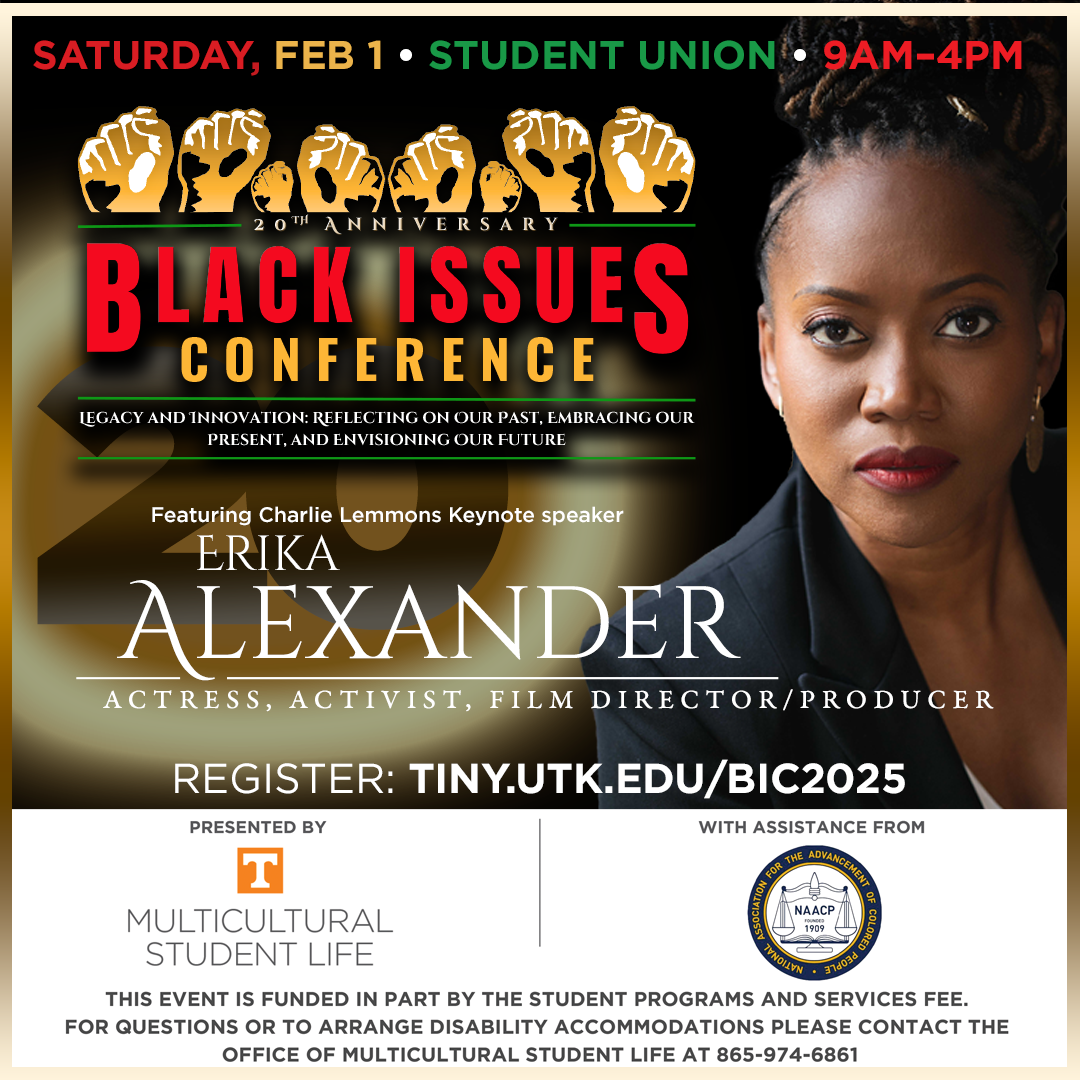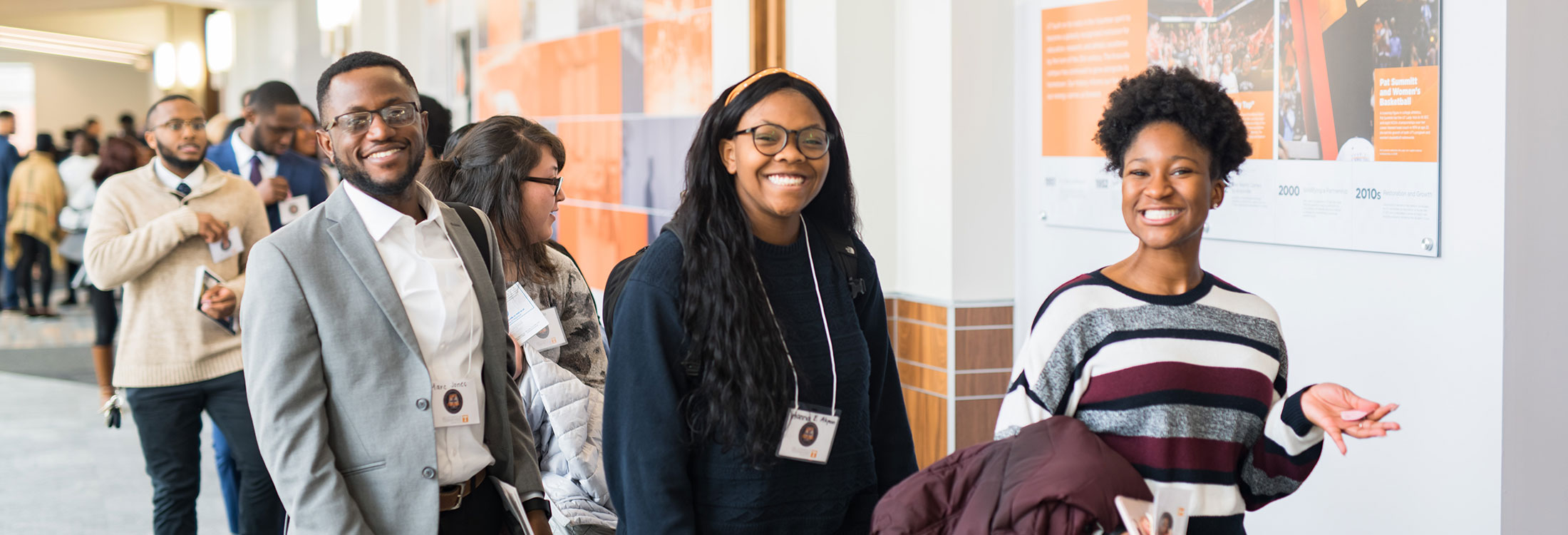The Black Issues Conference conference brings together students, faculty, staff, and community members to discuss different issues affecting the Black community.
All students are welcome.
20th Annual Black Issues Conference

Black Issues Conference 2025
The Annual Black Issues Conference coordinated by Multicultural Student Life and the UTK Chapter of NAACP is Saturday, February 1, 2025! The purpose of this conference is to offer a forum for research and discussion of issues affecting the African American community. The Black Issues Conference features an outstanding keynote speaker and workshops.
Since 2005, the National Association for the Advancement of Colored People (NAACP) and MSL have hosted the Black Issues Conference conference, which typically takes place in February during Black History Month. Some issues may include education, health, and much more.
Check back for updates. For more information, email: bic@utk.edu
Past Speakers
Wesley Hamilton, disability advocate and founder/CEO of the non-profit organization: Disabled But Not Really, 2024
Anna Gifty Opoku-Agyeman, editor of The Black Agenda: Bold Solutions for a Broken System, 2023
Dr. Sampson Davis, board Certified Emergency Medicine Physician and NY Times best-selling author & co-author of The Pact, We Beat the Street and The Band, 2022
Tabitha Brown, actress, Emmy winning host, healthy lifestyle influencer and author, 2021
April Ryan, Reporter, author, White House Correspondent for The Grio, 2020
Andrew Gillum, former Mayor of Tallahassee and Gubernatorial Nominee for the State of Florida, 2019
Angela Rye, attorney and CEO of IMPACT Strategies, 2018
David Banner, Grammy Award winning music producer, recording artist, philanthropist, activist and actor, 2017
Sharon Cooper, sister of Sandra Bland, subject of suspicious death in a Waller County, Texas jail, 2016
Roland Martin, NAACP award winner, author, journalist, host and managing editor of TV One’s NewsOne Now, 2015
